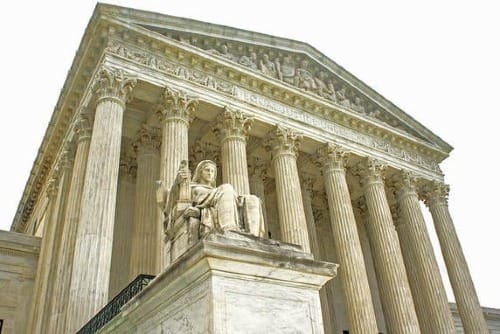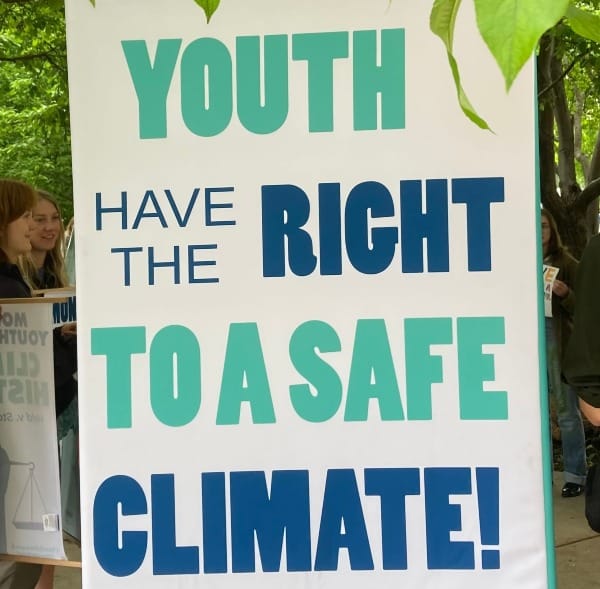Supreme Court Will Hear Fossil Fuel's Appeal Of Baltimore's Climate Lawsuit

Story originally published by Drilled News
The Supreme Court on Friday agreed to intervene in a climate liability lawsuit brought against 26 fossil fuel companies by Baltimore, which seeks to hold them responsible for the substantial costs of grappling with the heavy impacts of climate change.
In their petition, BP, Chevron, and other fossil fuel companies have asked the court to examine a narrow legal question in the case, which Baltimore first filed in 2018. Since then, the petroleum firms have embroiled the case in a fight over whether it should be heard in state or federal court.
Chevron spokesman Sean Comey said in a statement that the firm was “pleased” that the Supreme Court agreed to review the jurisdictional issues. The oil corporations have argued that the case belongs in federal court because it concerns national policies on energy and national security.
But the attorney for Baltimore said that the state versus federal court question will not be what’s at stake when the Justices hear arguments in this case.
“The Court has decided to review a narrow technical issue that has no bearing on the substance of Baltimore’s suit to hold these defendants accountable for the climate change harms and costs they are imposing on our taxpayers,” said Baltimore Acting Solicitor Dana P. Moore in a statement.
Moore termed the Supreme Court petition a tactic by the fossil fuel firms to delay the case’s progress to state court trial. “In public, defendants criticize our case as without merit. But in court, they do everything they can do delay proceedings and avoid a public trial on the facts,” she stated. “Their days of having it both ways are ending. Accountability is coming.”
Patrick Parenteau, an environmental law professor at Vermont Law School who has consulted informally with Baltimore, said it was a “big surprise” that the Supreme Court accepted the petition at this early procedural stage.
“I don't think this case provides a vehicle to consider the merits of the claims, or whether federal law completely preempts state common law,” Parenteau said, “but it's worrisome given the changing makeup of the Court.”
"Not game changing”
Baltimore’s case, like other climate lawsuits brought by municipal and state governments against major petroleum producers like Chevron, BP, and ExxonMobil, has been bogged down in procedural battles over whether the suits belong in federal or state courts.
Fossil fuel firms generally seek to have climate liability lawsuits moved to federal courts, where they believe judges may be more likely to dismiss them — and indeed have already done so in two cases — due to a past Supreme Court ruling that the Clean Air Act displaces federal common law in lawsuits about global warming.
But in its intervention in the Baltimore case, the Supreme Court will not be weighing in directly on questions of jurisdiction. Rather, it will be looking at a question of federal civil procedure, one that governs the review by federal appeals courts of remand orders: directives by federal judges to send cases back to state courts.
In their petition to the Supreme Court, the fossil fuel firms argue that appellate review of these orders should be broadened. But the 4th U.S. Circuit Court of Appeals and several other appeals courts have ruled that their review is limited to one of two exceptions per a statutory provision, 28 U.S.C. 1447d, in this case considering whether the companies acted under direction of “federal officers” in their drilling or mining operations on federal lands.
Three appeals courts reviewing remand orders in these climate cases have all rejected this argument.
This rather wonky issue is unrelated to Baltimore’s core allegations: that the fossil fuel companies deceived the public for decades on the climate risks of their products, worsening the effects of climate change to the point that the city faces billions of dollars in costs to grapple with intensified flooding, storms, and other impacts.
While some observers worried on Friday that the Supreme Court’s decision to intervene in Baltimore’s case might eventually derail over a dozen other climate liability lawsuits brought by municipalities and states, environmental attorney Alyssa Johl disagreed.
“No it's not game changing,” said Johl, the legal director of the Center for Climate Integrity, an initiative that supports climate accountability litigation against the fossil fuel industry. The court’s decision in this case will likely have little impact on those cases, she said, and represents little more than a potential procedural bump in the road.
“If the Supreme Court overturns the 4th Circuit’s decision and adopts the industry's argument, then the remand decision in the Baltimore suit will be returned to the 4th Circuit, and likely the same for remand decisions in the [other cases] for review of defendants' grounds for removal other than federal officer removal.
“While this is not ideal given limited time and resources, the outcome could very likely be the same — particularly given that the district courts denied each and every ground for removal — and the cases would proceed in state court.”


